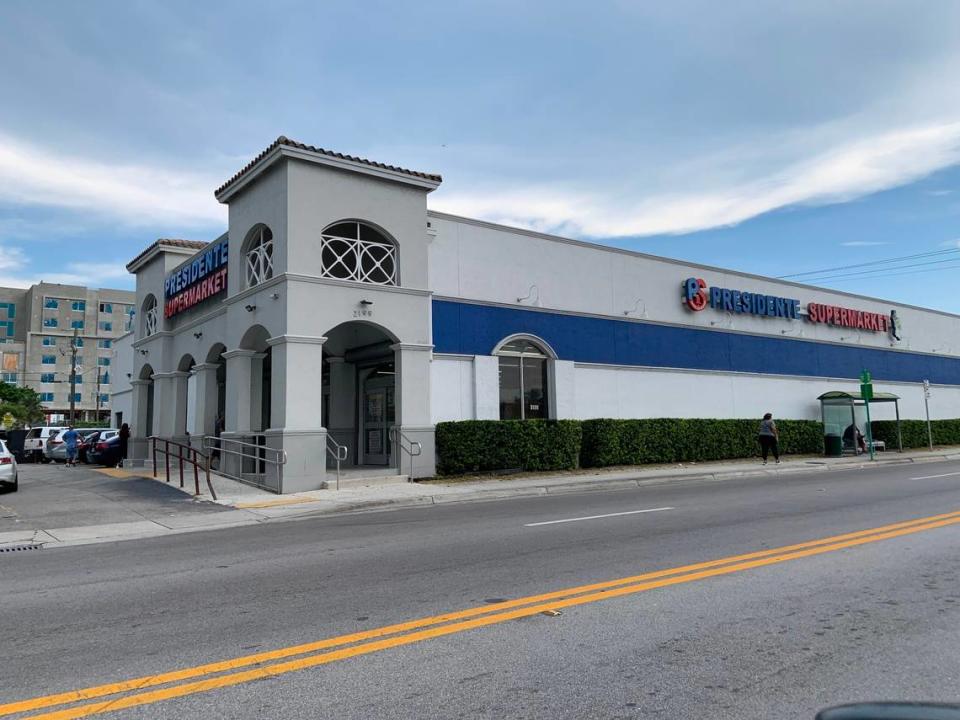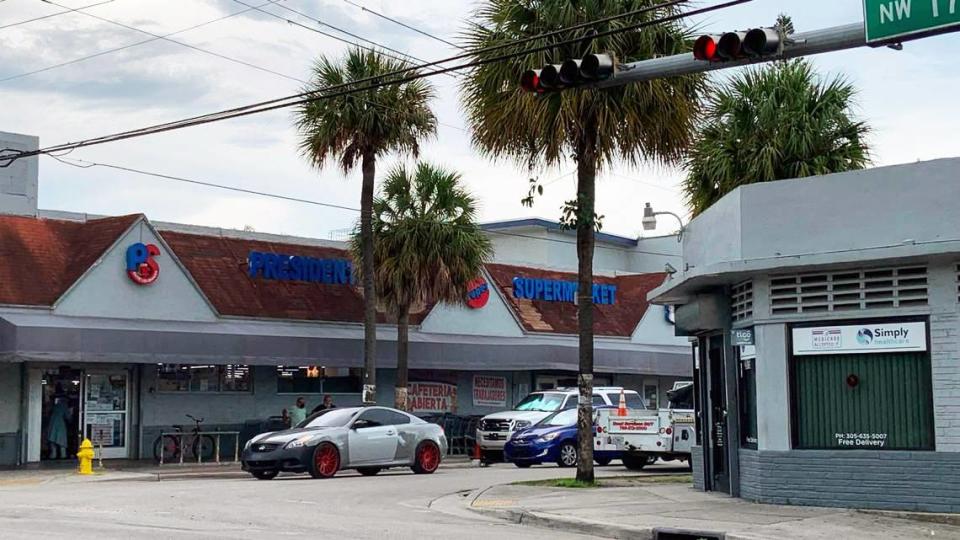Insects in pasta on the shelf, mold on onions: problems at 2 more Miami Presidente stores
Condensation dripping on pork and mold on the walls and food lowlighted failed inspections at two Miami Presidente Supermarkets, the third and fourth Miami-Dade locations in the chain to fail inspection in June.
READ MORE: Old food. Moldy food. Dead rodent. Two Miami Presidente Supermarkets fail inspection
Both stores in Miami’s Allapattah neighborhood, 2199 NW 36th St. and 3001 NW 17th Ave., got the close-up look from Florida Department of Agriculture Inspector James Zheng this week on Tuesday and Thursday, respectively.
Unlike inspections of restaurants by the state Department of Business and Professional Regulation, failed Florida Dept. of Agriculture inspections of supermarkets, grocery stores, convenience stores, retail bakeries, food storage and food distribution facilities don’t result in shutdowns.
The inspector can, however, put Stop Use Orders on equipment or areas of the store or equipment. Sometimes, when several areas of the store are under Stop Use Orders, the business decides opening isn’t worth the time or effort until the Stop Use Orders are lifted.
If you wish to file a complaint about any of the aforementioned kinds of establishments, go to the Department of Agriculture’s website.
What follows is just the most notable of what Inspector Zheng found.
A contamination that can be ‘life-threatening’ gets a drug recalled from CVS, Navarro
Presidente Supermarket, 2199 NW 36th St.

“Mold-like growth” appears on this inspection from Tuesday with alarming frequency.
In the deli department, where “several black flies” were seen flying around the processing area, there was “red mold-like growth” seen on the curtains leading to the walk-in cooler. “Multiple ceiling tiles” had “water damage and mold-like growth.”
In the backroom, the door frame to the meat walk-in cooler had a crack and “black, mold-like growth,” and the produce walk-in cooler had “black, mold-like growth where the wall and ceiling meet. Between the doors to the walk-in coolers and freezers, there was “red mold-like growth.”
Out where the shoppers walked, Inspector Zheng saw “green, mold-like growth” on a pack of sausage in an open air, deli meat cooler.
No mold-like growth in the pasta aisle, but the inspector spotted “multiple small grain insects” inside a box of pasta.
The meat area’s large, floor grinder held onto “Old brown residue ... at the end of a worm cavity.”
In the deli section, the slicers and the raw meat slicer were washed, rinsed and air dried. If you read that and thought, “Where’s the sanitizing?” good for you. Grab an extra Scooby Snack.
The produce area didn’t have cold water at the handwashing sink, but it didn’t have any water at the three-compartment sink, either, so that was fair.
Presidente Supermarket, 3001 NW 17th Ave.

When Inspector Zheng showed up at the Presidente just a mile from the Northwest 36th Street location, his inspection played a similar tune.
In the food service area, “black, mold-like growth” was spotted around the nozzle of the ice-making portion of the ice machine. The seafood area’s “black, mold-like growth” was on a wall and on metal paneling inside an ice machine. A produce area wall as well as the ceiling and wall of the meat processing room had “mold-like growth.”
Out in the retail area, Inspector Zheng saw “mold-like growth” on bags of white onions and on ginger in the produce, you-pick-it area.
Also in the produce area, the bean sprouts that needed to be cooled to under 41 degrees sat at 53.5 and 54 degrees. Watermelon, honeydew and cantaloupe also were too warm for proper safety. That’s just basura.
Firing a pregnant worker will cost a Miami Presidente store $75,000, settlement says
Back in the meat department, “water from condenser unit found to drip into boxes of unpackaged smoked ham hocks and smoked pork ribs in the walk-in cooler adjacent to meat processing area.” All that pork got tossed, too.
Perhaps Presidente needs to re-stress the importance of sanitizing. Here, the deli slicers, meat slicer, band saw, and meat grinder were washed, rinsed, dried and put out as ready to go without sanitizing.
At least they were washed properly. In the kitchen, Inspector Zheng found “recently cleaned deli slicer...with food residue on back of blade guard and on meat grip.” In the meat/deli service area, “old, yellow and black food residue (was) observed in between blades of the cuber/tenderizer located at the preparation table.
The outer limit of time for open food is seven days. The deli display case had a package of mortadella ham and one of hot souse meat that had been open for 14 days. One pack of prosciutto had been open 11 days and one pack didn’t have a date marking. Nobody knew how long it had been there.
At least it didn’t have mold-like growth on it.

